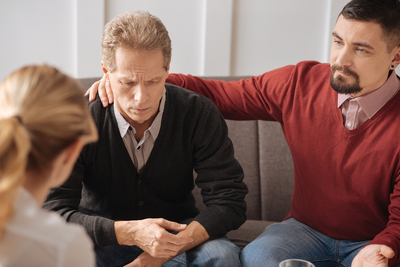
The more we understand the challenges facing the LGBT community, the more we can help them stay happy and healthy.
LGBT adults are more than twice as likely to report using drugs in the past year as their heterosexual counterparts, according to the Center on Addiction. They’re also more likely to binge drink, smoke cigarettes, and to report having had drug and alcohol problems. All of this begs the question: Why do members of the LGBT community face a higher risk for substance abuse and addiction than the rest of the population? A lot of it comes down to homophobia.
Here’s a closer look at the situation, along with what can be done about it.
Understanding Homophobia
The world may be a kinder place to LGBT people today than it was a few decades ago, but there is still a long way to go. In fact, the Centers for Disease Control and Prevention (CDC) include homophobia, stigma, and discrimination as a gay and bisexual men’s health issue. These attitudes don’t exist in a vacuum. Rather, they have a direct impact on the health and well-being of LGBT individuals.
“These negative beliefs and actions can affect the physical and mental health of gay, bisexual, and other men who have sex with men, whether they seek and are able to get health services, and the quality of the services they may receive. Such barriers to health must be addressed at different levels of society, such as health care settings, workplaces, and schools to improve the health of gay and bisexual men throughout their lives,” explains the CDC.
Many Detrimental Effects
Negative attitudes — both hidden and overt — toward the LGBT community can have serious repercussions pertaining to everything from employment to access to healthcare. The social impacts are also grave. In addition to being subjected to bullying, teasing, harassment, and other violent behaviors, LGBT individuals may face rejection by family members and friends.
This rejection, in particular, can be especially dangerous. According to the CDC, LGBT young adults who’ve been rejected by their families are eight times more likely to try to commit suicide; six times more likely to report high levels of depression; and three times more likely to have risky sex. They’re also three times more likely to use illegal drugs.
One gay addict spoke of his own experiences with being rejected by his family after coming out to them in The Guardian. “I know they love me and they were doing the best they could. They didn’t know what I needed, so they looked to their own experience, a culture that taught that if you were gay it was a disaster. You’d be lonely, you’d get AIDS, you’d find life difficult. They felt they were trying to support me.” The takeaway? Even family members with “good intentions” may end up doing harm.
Says former Attitude editor and Straight Jacket author Matthew Todd, “It is a shame with which we were saddled as children, to which we continue to be culturally subjected.”
All of this can lead to stress and shame — which can cause LGBT individuals to turn to drugs and alcohol in an attempt to self-medicate these powerful emotions.
The Treatment Imperative
The good news? Improving social support for LGBT people can go a long way toward boosting their self-esteem, helping them form a more positive group identity, and supporting more positive mental health — all of which may help reduce the risk of addiction within the LGBT community.

Support from people who understand can make all the difference.
However, what about the millions of LGBT people who are already struggling with substance abuse? Finding the right treatment can make all the difference. Contends Owen Jones for The Guardian, “Because of our internalized shame, LGBT people often find it difficult to talk about the problems we collectively face. The danger is always of reinforcing the damaging stereotypes that have already caused so much distress. But we have to confront a crisis that is damaging health and taking people’s lives.”
Enter Harris House’s LGBT addiction treatment programs. By giving addicts a safe space to address the unique roots of their substance abuse issues, including homophobia and the stress it generates, Harris House clears a path to recovery. Contact us today to learn more about our addiction treatment programs for LGBT people.







